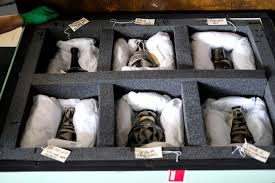
The University of Cambridge has returned 39 traditional artifacts to Uganda in a major restitution effort, a move that has been welcomed by Ugandan officials. The items, ranging from tribal regalia to delicate pottery, were shown to AP journalists on Wednesday and officially returned to Uganda on Saturday.
Although the objects remain the property of the Museum of Archaeology and Anthropology at Cambridge, they are being loaned to Uganda for an initial period of three years. Mark Elliott, the museum’s senior curator in anthropology, described the collaboration as a “museum-to-museum” effort resulting from years of discussions about returning objects considered “exceptionally powerful and sensitive” to their communities of origin.
The returned items represent a small portion of the approximately 1,500 ethnographic objects from Uganda that Cambridge has possessed for a century, most of which were acquired through donations from private collections and an Anglican missionary active in Uganda in the late 19th and early 20th centuries.
Jackline Nyiracyiza, the Ugandan government commissioner in charge of museums and monuments, expressed hope for future repatriations, stating that they are working with the Cambridge team to engage with other museums and secure the return of more objects shortly. The Uganda Museum in Kampala is planning a temporary exhibition of the returned artifacts next year.
This restitution event is considered a breakthrough by Ugandan officials, with Nelson Abiti, principal curator of the Uganda Museum, claiming it to be the largest single movement of objects returned to the African continent in recent years. The African Union has placed the return of looted cultural property on its agenda, aiming to establish a common policy on the issue.
